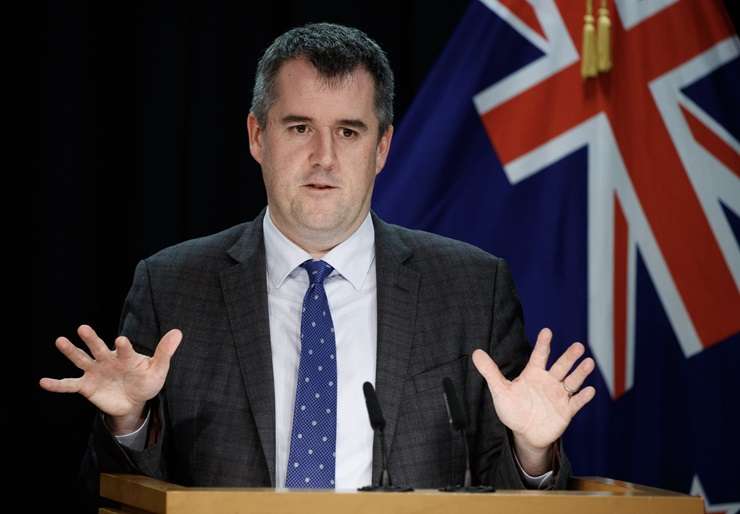- Economist David Norman rates the foreign buyer ban highly, saying it prioritises housing for residents.
- He criticises Labour’s removal of interest deductibility for landlords, calling it a market distortion.
- Norman emphasises the need for a population strategy, warning of housing strain without proper planning.
Economist David Norman looked back over 25 years of the housing market in New Zealand for OneRoof, coming up with a scorecard of positives and negatives.
Start your property search
The former chief economist for Auckland Council, who now works for GHD, found the “did wells” were outweighed by the “must improves”.
Foreign buyer ban - 10/10
The foreign buyer ban was brought in by Labour in 2018 at a time when there had been much scrutiny on whether foreigners were buying up housing and outbidding New Zealanders. Norman said Labour found an effective way to put a ban in place by using the Overseas Investment Office to restrict buyers.
The ban was a good move, said Norman: “This isn’t born out of some kind of xenophobia or anything like that. It’s simply saying when we have a housing affordability problem you want to be prioritising housing for people who actually live in your country and who are accountable in your country.”

Economist David Norman believes the foreign buyer ban was a good move. Photo / Supplied
Norman said data from around 2016 showed one in six homes in central Auckland was selling to a foreign buyer, with similar sales in Queenstown, describing the ban as like turning a tap off.
He does not accept limiting sales to foreigners to over a certain dollar amount would protect lower-income Kiwi buyers, saying, “it’s all the other houses along the way where prices get bid up because of the presence of those buyers”.
Interest deductibility changes - 0/10
On the flip side, Norman gave Labour a zero when it removed the ability of landlords to claim mortgage interest as a tax deduction, which has been reversed by the Coalition Government.
Norman said not only did Labour’s policy reduce demand for investment properties, it introduced a distortion into the market by saying landlords could not deduct the interest incurred in running their property rental business. That’s contrary to any other kind of business which borrows money to undertake its business, he said.
The bright-line test - 6/10
The National Government introduced the bright-line test in 2015 where anyone selling a residential property (that was not their main property) within two years was subject to tax, thereby identifying people buying houses with the intention of flipping them.
He approved when the tax was extended by Labour to five years, then 10 years, but it has been reversed back to two years by the Coalition. Norman would have given the tax a 10 out of 10 if it had not been “watered down”.
Read more stories from OneRoof’s special report:
- How did NZ house prices quadruple in the space of 25 years?
- How much have New Zealand house prices risen since 2000?
- Ex-minister's overcrowding fears - 15 to 20 people to a house
He supported the test because other assets are subject to capital gains tax, such as shares and KiwiSaver, yet residential investment properties are not.
“That’s a distortion. That means it encourages people to over-invest in property instead of putting it into other uses in the economy.”
Norman also said the tax was never enforced, despite millions of dollars being set aside to do so.
Population and migration strategy - 0/10
All governments have failed at this, according to Norman. Both Labour and National-led governments have used population growth, as in the number of mouths to feed, as a quick way to boost headline GDP growth.
Norman said that was not a sustainable way to grow a country. Immigration data shows New Zealand overwhelmingly imports unskilled labour without being able to provide the necessary infrastructure and housing, he said.
As the country looks ahead to 2060, it needs a plan: “How do we get there? What’s the mix of skills that we’re going to need? How are we going to provide the infrastructure we need to get there?”

Norman believes housing will feel the strain without a developed strategy to handle population growth. Photo / Chris Tarpey
Another negative is the promotion of a “false dream” to migrants in low-skilled categories who come here but who have no hope of ever owning their own house, or who might not even be able to stay long-term.
Norman also pointed to the “massive” net loss of Kiwis to Australia taking place again, who leave with their skills and experience. New people then have to learn all that lost local knowledge: “That’s a terrible way to build an economy.”
Productivity in the construction sector - 2-3/10
Productivity has been poor for decades. Among a range of issues are monopolies on building materials. Norman said he called for a National Register of approved products a decade ago.
“What we overwhelmingly have is 70 councils around the country each individually determining whether they are comfortable with a certain product being used. What an unbelievably inefficient way to drive innovation in construction and better pricing and, therefore, better affordability.”
Norman also called for more standardisation of products, and more offsite manufacturing of homes so they can be built under a roof without weather delays and with more efficient council inspections.
Zoning - 4/10
Nationally, Norman scored councils low on zoning but said Auckland Council gets a 7/8 out of 10 because of the Unitary Plan, and Wellington gets a similar score for recently pushing back against a nimbyism which Norman said was going to condemn the city to years of low-intensity zoning.
He has been disappointed to see some councils around the country using the Coalition’s reneging on a bipartisan medium-density housing agreement to backflip and come up with reasons for not having to increase density in brownfield areas, despite knowing it would improve equity, reduce congestion and reduce emissions. He said these three issues are discussed more than anything at a local government level.
Pricing infrastructure accurately - 4/10
Norman is encouraged by Housing Minister Chris Bishop’s announcement councils will have to open up 30 years of development capacity, but said New Zealand has a history of undercharging for the true cost of infrastructure-to-growth.
Auckland and Hamilton have done good work on the issue but most of New Zealand lags “dangerously” behind.

Housing Minister Chris Bishop is looking to reduce the roadblocks to new homes. Photo / Mark Mitchell
The rating system - 2/10
Councils are allowed to set rates on capital value (land value plus improvements, i.e the house), or just land value. Most use capital value to divvy up the rates but Norman said this was a “terrible” way to do it, saying the majority of economists agree charging on capital value disincentivises development.
“If I have a house on my land and I now decide to build a 2-bedroom granny flat in the backyard, I have to pay more taxes – I have to pay a higher rates bill – so you’re disincentivising people from using their land efficiently.”
If councils switched to land value the majority of ratepayers would see their rates bill fall and hundreds more houses would probably be built each year.
Council regulations - 0/10
Norman was quick to point out councils over-regulate because they came out of an environment where there was not enough regulation and the result was the leaky home debacle.
By the time he left Auckland Council, ratepayers had paid over $600 million in leaky building claims. That’s because the builder was long gone and the council was left holding the baby.
“Now they’re like ‘we’re going to monitor every tiny little thing’.”
Norman called for the Government to change the law around liability, moving to proportional liability which would mean councils could not be held responsible for other people’s errors. That would reduce their risk and in turn help them to be less risk-averse.
Proportional liability would only work, however, if accompanied by mandatory building guarantees from an approved provider. That way homeowners would have protection, and the council would have protection.
Good builders would get the work as bad builders would not be able to get insurance. Not only would the sector be cleaned up of cowboys but there would be a marked improvement in quality, said Norman.
- Click here to find properties for sale




















































































